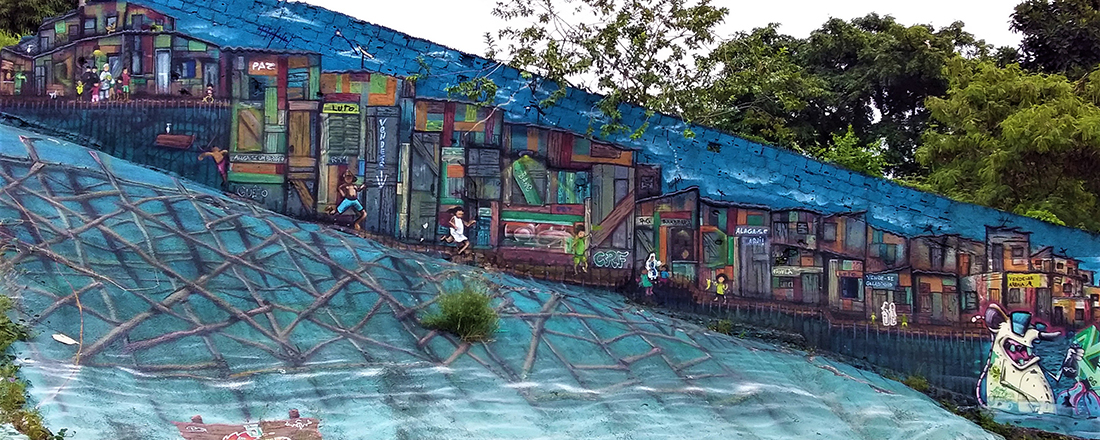Moral Geographies of Re-Existence
Moral Geographies of Re-Existence: Socio-cultural Practices and Visions of a Good Life in Afro-descendant Communities in Salvador da Bahia (Brazil) and Cartagena de Indias (Colombia)
Members of the Research Team
- Prof. Dr. Eberhard Rothfuß; Social and Population Geography; University of Bayreuth; Eberhard.Rothfuss@uni-bayreuth.de
- Prof. Dr. Livio Sansone; Social Anthropology; Centre of Afro-Oriental Studies (CEAO), Federal University of Bahia (UFBA); liviosansone.ufba@gmail.com
- Valerie Gruber; Social and Population Geography; University of Bayreuth; Valerie.Gruber@uni-bayreuth.de
Summary
Our research project sheds light on the ways in which Afro-descendant communities resist and re-exist in postcolonial and post-slavery Latin America. We focus on Salvador da Bahia (Brazil) and Cartagena de Indias (Colombia), two major arrival ports of the transatlantic slave trade. These traumatic places of enslavement and colonization are still marked by racial discrimination and socio-spatial exclusion. At the same time, their colonial city centres are recognised as UNESCO World Heritage, attracting thousands of tourists every year. In this ambivalent context, we focus on peri-urban neighbourhoods which tend to be ‘off the map’ of many tourists, researchers and political actors. In the face of violence and poverty, their dwellers are often stigmatised across-the-board as if they were morally inferior and incapable of fostering a peaceful social transformation. In contrast, we assume that their self-organised socio-cultural projects may not only (re)valorise Afro-descendant identities and life-worlds, but also change people’s strong evaluations of what is right and good, altering their visions of a good life.
Applying ethnographic, documentary and participatory action research methods, we seek to explore the socio-structural, moral-cultural and identity-related dimensions of change stimulated by these self-organised practices of re-existence. In a dialogic process, we collaborate with Afro-descendant leaders and members of different peri-urban communities in both cities. While enhancing our understanding of Afro-diasporic strivings towards a good life in Latin America, we aim at breaking new ground in research on moral geographies. We will also invest in the development of a transnational comparative methodology to analyse race relations and racial hierarchies, focusing on cities and their system of opportunities and spatial regimes rather than on nation states, as traditionally has been the case in comparative ethnic studies. Altogether, we strive for a collaborative, transdisciplinary knowledge production, fostering dialogues between diverse theoretical, methodological and practical experiences from Africa, Latin America and Europe.
Duration
01 December 2019 – 30 November 2023


